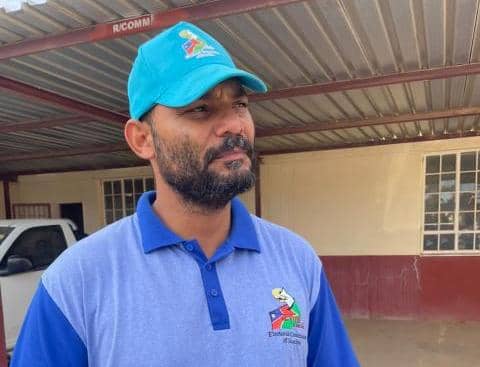THE Windhoek Municipality will recharge the city’s aquifer over the next 14 years by pumping water into underground wells during good rainy seasons in order to ‘bank’ water supplies to be used during dry spells.
Studies done by NamWater confirmed that the recharging of the Windhoek aquifer was the most feasible option currently available for augmentation of water supply to the central areas of the country, which would secure water for Windhoek, Okahandja, Karibib and the Navachab gold mine. Costs will be shared among them.A cost plan has been drafted until 2025 and the total cost to the Windhoek municipality until then is estimated at N$88,5 million.According to Windhoek City spokesperson Liz Sibindi, the municipality drilled ten dedicated injection wells over the last three years to pump water into for the water ‘bank.’ “Infrastructure required to incorporate these new wells into the bulk supply system for abstraction as well as recharge is budgeted for in this financial year,” Sibindi said in a media release yesterday.The water recharge project is a combined effort by the Windhoek Municipality, NamWater and the Ministry of Agriculture and is seen as a project of national strategic importance, as it is designed to secure water supply to the capital city as well as all consumers in the central areas downstream of Von Bach Dam.The City of Windhoek is internationally acclaimed for innovative solutions such as direct reclamation around 40 per cent of drinking water from domestic sewage effluent, the use of semi-purified water for the irrigation of parks and sports fields and water demand management.”The artificial recharge project is indeed an innovative plan to optimise the available water sources and although the project will provide security of supply, it will not reduce the need for a water-wise lifestyle of all Windhoek residents,” Sibindi emphasised.Water tariffs might increase by about eight per cent over the next years.During the drought of 1996, a decision was taken to investigate the feasibility of storing surplus surface water underground through the artificial recharging of the Windhoek aquifer.”After two of the last three rainy seasons had yielded exceptional inflow into the three dams of NamWater, dam levels are still high and the parties are now ready to start with full-scale recharge,” Sibindi said.”The parties have agreed that water for recharge will be purchased from NamWater at operational cost only at time of injection, and that the fixed-cost part of the bulk water tariff will be paid to NamWater on the date of abstraction.”The Windhoek aquifer will be used as a bank to store water during times of abundant supply and to abstract this water during times of short supply.In this way, a much higher security of supply is guaranteed for Windhoek and central Namibia.NamWater will be able to earn revenue during periods when low levels in the dams reduce supply from that source.Artificial recharging of sand aquifers is practised widely throughout the world, but recharging in hard rock aquifers such as the Windhoek aquifer is not common, according to Sibindi.To manage the project, a steering committee chaired by the Department of Water Affairs in the Ministry has been established to ensure that the project is regulated in a way that guarantees compliance by all parties.Costs will be shared among them.A cost plan has been drafted until 2025 and the total cost to the Windhoek municipality until then is estimated at N$88,5 million.According to Windhoek City spokesperson Liz Sibindi, the municipality drilled ten dedicated injection wells over the last three years to pump water into for the water ‘bank.’ “Infrastructure required to incorporate these new wells into the bulk supply system for abstraction as well as recharge is budgeted for in this financial year,” Sibindi said in a media release yesterday. The water recharge project is a combined effort by the Windhoek Municipality, NamWater and the Ministry of Agriculture and is seen as a project of national strategic importance, as it is designed to secure water supply to the capital city as well as all consumers in the central areas downstream of Von Bach Dam.The City of Windhoek is internationally acclaimed for innovative solutions such as direct reclamation around 40 per cent of drinking water from domestic sewage effluent, the use of semi-purified water for the irrigation of parks and sports fields and water demand management.”The artificial recharge project is indeed an innovative plan to optimise the available water sources and although the project will provide security of supply, it will not reduce the need for a water-wise lifestyle of all Windhoek residents,” Sibindi emphasised.Water tariffs might increase by about eight per cent over the next years.During the drought of 1996, a decision was taken to investigate the feasibility of storing surplus surface water underground through the artificial recharging of the Windhoek aquifer.”After two of the last three rainy seasons had yielded exceptional inflow into the three dams of NamWater, dam levels are still high and the parties are now ready to start with full-scale recharge,” Sibindi said.”The parties have agreed that water for recharge will be purchased from NamWater at operational cost only at time of injection, and that the fixed-cost part of the bulk water tariff will be paid to NamWater on the date of abstraction.”The Windhoek aquifer will be used as a bank to store water during times of abundant supply and to abstract this water during times of short supply.In this way, a much higher security of supply is guaranteed for Windhoek and central Namibia.NamWater will be able to earn revenue during periods when low levels in the dams reduce supply from that source.Artificial recharging of sand aquifers is practised widely throughout the world, but recharging in hard rock aquifers such as the Windhoek aquifer is not common, according to Sibindi.To manage the project, a steering committee chaired by the Department of Water Affairs in the Ministry has been established to ensure that the project is regulated in a way that guarantees compliance by all parties.
Stay informed with The Namibian – your source for credible journalism. Get in-depth reporting and opinions for
only N$85 a month. Invest in journalism, invest in democracy –
Subscribe Now!










